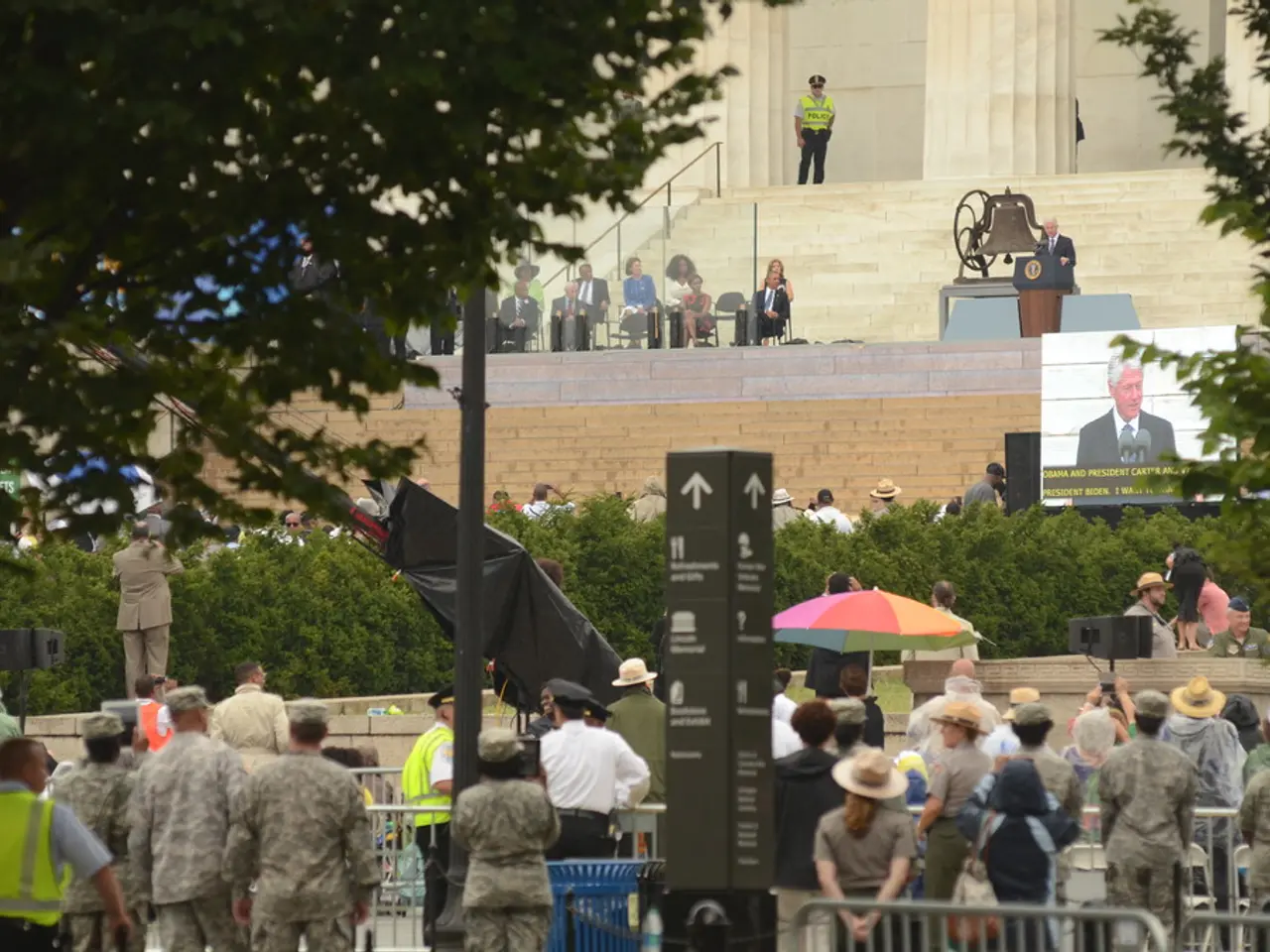Under the Trump administration, is there a possibility of losing American citizenship?
In the wake of the 2025 Trump administration's directive to expand denaturalization efforts, naturalized Americans are encouraged to take proactive steps to safeguard their citizenship status. Here are some best practices to follow:
## Best Practices to Preserve Citizenship
1. **Absolute Honesty on Immigration Forms**: Be truthful on all immigration-related forms and applications. Even minor omissions can lead to future complications.
2. **Maintain a Complete Personal Archive**: Keep detailed records of all petitions, N-400 forms, affidavits, and supporting documents. This can help in case of future audits or inquiries.
3. **Seek Counsel Before Dual-Loyalty Acts**: Consult with an attorney before engaging in activities that could be seen as indicating dual loyalty, such as voting in foreign elections or serving in a foreign military. These actions can trigger expatriation if done with clear intent.
4. **Stay Tax-Compliant and Use Your U.S. Passport**: Maintain compliance with U.S. tax laws and use your U.S. passport for international travel. This demonstrates ongoing allegiance to the United States.
5. **Address Criminal Issues Early**: If you have any criminal history, consider seeking post-conviction relief. Undisclosed criminal issues can be grounds for denaturalization.
6. **Respond Promptly to Government Inquiries**: Quick responses to government inquiries are crucial. Failure to respond can result in a default judgment that revokes citizenship without a chance for a merits defense.
7. **Consult a Licensed Immigration Attorney**: It is advisable to seek professional legal advice if you are ever notified of potential denaturalization proceedings or if you are considering formal renunciation of citizenship.
## Understanding the Legal Context
- **Civil Denaturalization**: The recent directives emphasize civil denaturalization proceedings, which can remove citizenship for obtaining it illegally or through material misrepresentation. - **No Statute of Limitations**: Naturalizations remain vulnerable to denaturalization regardless of how long ago they occurred. - **High Burden of Proof**: While the government has a high burden of proof, it is committed to providing additional resources to meet this standard.
It is essential to understand that US citizenship is a prized and often misunderstood right. Consulting a licensed immigration attorney is indispensable in cases of formal renunciation or when facing a DOJ letter. Seeking counsel before engaging in dual-loyalty acts, such as voting in certain foreign elections, serving in a foreign military, or taking high foreign office, can help avoid expatriation. Staying tax-compliant and using a US passport demonstrates ongoing allegiance and undermines claims of abandonment. The directive has no statute of limitations, making naturalizations completed decades ago vulnerable.
In the context of the 2025 Trump administration's directive to expand denaturalization efforts, it's crucial for naturalized Americans to take proactive steps to safeguard their citizenship status, especially during elections and policy-and-legislation discussions related to immigration and politics. Working with a licensed immigration attorney can help understand the legal context, including the implications of civil denaturalization proceedings and the absence of any statute of limitations, ensuring a higher chance of preserving citizenship in the face of the government's high burden of proof.






